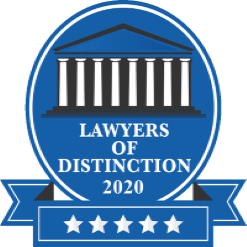Understanding the Different Types of Visas: Insights from a Florida Immigration Attorney
Navigating the complex landscape of U.S. immigration laws and regulations can be a challenging endeavor for individuals looking to enter or stay in the country. A multitude of visa options are available, each with its own set of rules and guidelines.
Understanding these visas is critical for anyone aiming to make informed decisions about their immigration journey. Whether it’s for temporary travel or permanent relocation, identifying the appropriate visa type is an essential first step.
The process of applying for a visa typically involves careful preparation and attention to detail. The requirements can vary significantly from one visa category to another, necessitating the assistance of an immigration attorney, especially in states like Florida where immigration is a common occurrence.
Assistance from a Florida immigration lawyer can provide valuable guidance through each phase of the application process.
Moreover, preparing for the visa interview and understanding what to expect can significantly enhance an applicant’s chances of success.
Key Takeaways
- Different visas serve various travel and immigration purposes, requiring specific eligibility criteria.
- Applying for a visa demands thorough preparation and adherence to detailed application procedures.
- Skilled immigration attorney services in Florida are instrumental in guiding applicants through legal complexities and interview preparations.
Types of Visas
Types of Visas
When navigating the complexities of U.S. immigration policy, particularly in Florida, it’s essential to understand the wide array of visa options.
These are classified into two main categories: non-immigrant visas, for temporary stays, and immigrant visas for those seeking permanent residence.
Non-immigrant Visas
Non-immigrant visas are for individuals who intend to stay in the United States temporarily. These can include purposes such as tourism, business, work, or study.
In Florida, a prominent destination for travelers and international students, the following non-immigrant visas are frequently applied for:
- Tourist and Business Visas (B1/B2): Ideal for short visits, these visas facilitate tourism as well as business travel.
- Student Visas (F-1 and M-1): The F-1 Visa supports academic studies, while the M-1 Visa is for vocational studies.
- Work Visas (H, L, O, P): Various work visas exist for different types of employment, from specialized occupations (H1-B) to intercompany transferees (L) and individuals with extraordinary ability (O).
Immigrant Visas
For those seeking to reside permanently in the United States, immigrant visas are the pathway to achieving this goal. The immigrant visa application process is comprehensive and requires meeting specific eligibility criteria. The main categories include:
- Family-Based Visas: These visas unite family members with U.S. citizens or Lawful Permanent Residents (LPR).
- Employment-Based Visas (EB): Individuals with job offers in the U.S. can be sponsored by their employers.
- Diversity Visas (DV): Also known as the “green card lottery,” this program is designed to diversify the immigrant population in the
U.S.Applicants in Florida may find local immigration attorneys instrumental in understanding and applying for the correct immigrant visa category.
Visa Application Process Overview
The visa application process typically begins with identifying the appropriate visa category based on the individual’s purpose of travel and eligibility. The next steps involve gathering necessary documentation and completing relevant application forms.
- Determine the Visa Type:
One should consult an immigration attorney for guidance on selecting the visa type suited for their specific situation. - Complete the Application:
Fill out the required forms, which may vary by visa type. - Compile Supporting Documents:
Applicants must provide evidence to support their visa application. This may include proof of employment, financial stability, or a sponsor. - Pay the Visa Application Fee:
Fees are determined by the visa category and must be paid before scheduling the interview. - Schedule and Attend the Visa Interview:
The applicant will attend an interview at a U.S. Embassy or Consulate, where an officer will assess their application. - Visa Processing:
Post-interview, one should expect a processing period during which their application is reviewed in detail. The visa processing system may involve additional steps, such as security checks. - Visa Issuance or Denial:
The final decision is made based on the applicant’s interview and submitted documentation.
Throughout this process, applicants may seek visa application help to ensure all requirements are met accurately.
It’s crucial to follow the prescribed procedure diligently for a successful application.
Immigration Legal Services in Florida
In Florida, a range of comprehensive immigration legal services are provided by adept attorneys at Croce & Associates, ensuring meticulous guidance through the procedural complexities for immigrants. Services cover initial consultations to robust legal advocacy, tailored to the needs of each client.
Consultation and Case Evaluation
Florida immigration lawyers at Croce & Associates offer initial consultations to assess and evaluate an individual’s circumstances and potential immigration pathways. These professionals possess a deep understanding of the law and provide case evaluations to strategize the most appropriate course of action. Immigrants are thus empowered with clarity on their legal standing and options.
Application Preparation and Submission
Application preparation and submission are critical components of immigration attorney services at Croce & Associates in Florida. We meticulously prepare necessary documents to ensure accuracy and compliance with immigration laws. We also handle the submission process, navigating complex bureaucratic procedures and thereby minimizing the potential for delays or rejections.
Legal Representation and Advocacy
Legal representation in immigration matters can profoundly influence the outcome of a case. Florida’s immigration visa attorneys at Croce & Associates provide steadfast legal representation in various proceedings, from interviews to court appearances. Furthermore, our advocacy efforts extend beyond individual cases, striving for broader reforms that benefit the immigrant community at large.
Practical Tips for Visa Applicants
When embarking on the visa application process, it is essential to approach the endeavor with a detailed plan and precise documentation. Below are practical tips to assist applicants through the process:
Preparation is Key: Research the specific requirements for your visa category.
Documents such as passports, photographs, and financial statements should be up-to-date and readily available.
Understand the Specific Visa Type: Whether applying for a student visa such as the F-1 or M-1, or a work visa, requirements and processes differ. Familiarize oneself with the stipulations related to one’s visa type.
Accurate Documentation: One’s application must include accurate, comprehensive information. Errors can result in delays or denials.
Filling out Forms: Ensure all forms are completed with precision. Mistakes on forms can lead to unnecessary complications.
Employment Authorization: If seeking an L-2 visa for work purposes as a dependent of an L-1 visa holder, remember to file Form I-765.
Legal and Process Guidance: The visa application process can be intricate.
Seeking visa process guidance from an immigration lawyer might provide clarity and increase the chances of success.
Adhere to Deadlines: Timely submission of applications and responses to any request for additional information is crucial.
Scheduling Interviews: Once the application is submitted, promptly schedule any required interviews to avoid long waiting periods.
Stay Informed: Laws and requirements can change. Staying abreast with the latest immigration news ensures applicants are not caught off-guard.
Key Considerations for Visa Interviews
When preparing for a U.S. visa interview, knowing what to expect is crucial.
One should approach the interview with a solid preparation, understanding that it’s a significant step in the immigration process. Here are some key considerations to keep in mind:
- Documentation: They must bring all required documents, including passports, photographs, appointment letters, and any other supporting material that verifies their eligibility for the visa category they are applying for.
- Interview Basics: It’s key to understand the structure and potential questions of the interview.
Common queries might relate to their purpose for visiting, financial status, or ties to their home country. - An immigration law guide may provide insights into typical questions for their specific visa type.
- Attire and Punctuality: Dressing appropriately is essential. Neutral and professional clothing is recommended.
Arriving on time or early for the interview can also set a positive tone. - Communication: They should answer all questions truthfully and to the point.
Confidence is key, but it’s equally important not to provide unnecessarily long answers. - Attitude: A calm and respectful demeanor will reflect positively on their visa application.
It is advised to maintain eye contact and be polite throughout the interview. - U.S. Immigration Legal Advice: Consulting with a Florida immigration attorney such as Croce & Associates Immigration Law Services ahead of the interview can be beneficial as they provide tailored advice and preparation tips for a successful visa interview.
Summary
- Different visas cater to varied purposes, requiring distinct eligibility criteria.
- Visa applications necessitate detailed preparation and strict adherence to application procedures.
- Immigration attorney services in Florida play a crucial role in guiding applicants through legal challenges and interview preparations.
- Non-immigrant visas are designed for temporary stays in the U.S. for tourism, business, work, or study.
- Immigrant visas are sought by those aiming for permanent residency, with family-based, employment-based, and diversity visas as main categories.
- The visa application process starts with choosing the right visa category, followed by form completion, document compilation, application fee payment, interview scheduling, and, finally, visa processing and issuance or denial.
- In Florida, comprehensive immigration legal services help navigate application complexities, offering consultation, application preparation, and legal advocacy.
- Practical tips for applicants include thorough preparation, understanding visa-specific requirements, ensuring accurate documentation, and seeking legal guidance.
- Visa interviews require careful preparation, with considerations for documentation, interview questions, attire, punctuality, and communication.
Frequently Asked Questions
In navigating the complex landscape of U.S. visas, individuals often have key questions about categories, types, and processes. This section addresses common queries with precise information provided by immigration experts.
What are the main categories of immigrant visas available in the United States?
Immigrant visas in the United States are primarily divided into family-based and employment-based categories. Additional visas for refugees and asylees are also available.
The family-based visas allow U.S. citizens and lawful permanent residents to sponsor relatives for immigration. Meanwhile, employment-based visas are designed for different levels of skilled workers.
How does one determine the appropriate visa type for their situation when planning to travel to the U.S.?
Determining the appropriate visa type involves evaluating the purpose of the U.S. travel. This could be for tourism, studying, work, or immigration.
Consulting a knowledgeable immigration attorney can provide personalized guidance tailored to one’s unique circumstances.
What are the primary differences between immigrant and non-immigrant visas?
Immigrant visas are for individuals who intend to reside permanently in the U.S., eventually leading to citizenship if desired. Non-immigrant visas are for temporary stays, where the individual must typically demonstrate intent to return to their home country after their visa expires.
What is the process of obtaining a U.S. visa for employment purposes?
Obtaining a U.S. visa for employment involves the prospective employer filing a petition with U.S. Citizenship and Immigration Services (USCIS). This is followed by the individual applying for the visa at a U.S. consulate or embassy.
Visas for employment typically require labor certification and proof of qualifications.
What are the requirements for transitioning from a non-immigrant to an immigrant visa status in the U.S.?
Transitioning from a non-immigrant to immigrant status usually requires a U.S. employer or family member to sponsor the individual for a green card. The individual must also meet eligibility criteria such as no visa overstays or violations of non-immigrant status.
The process is complex and often necessitates legal guidance.










Leave a Reply
Want to join the discussion?Feel free to contribute!